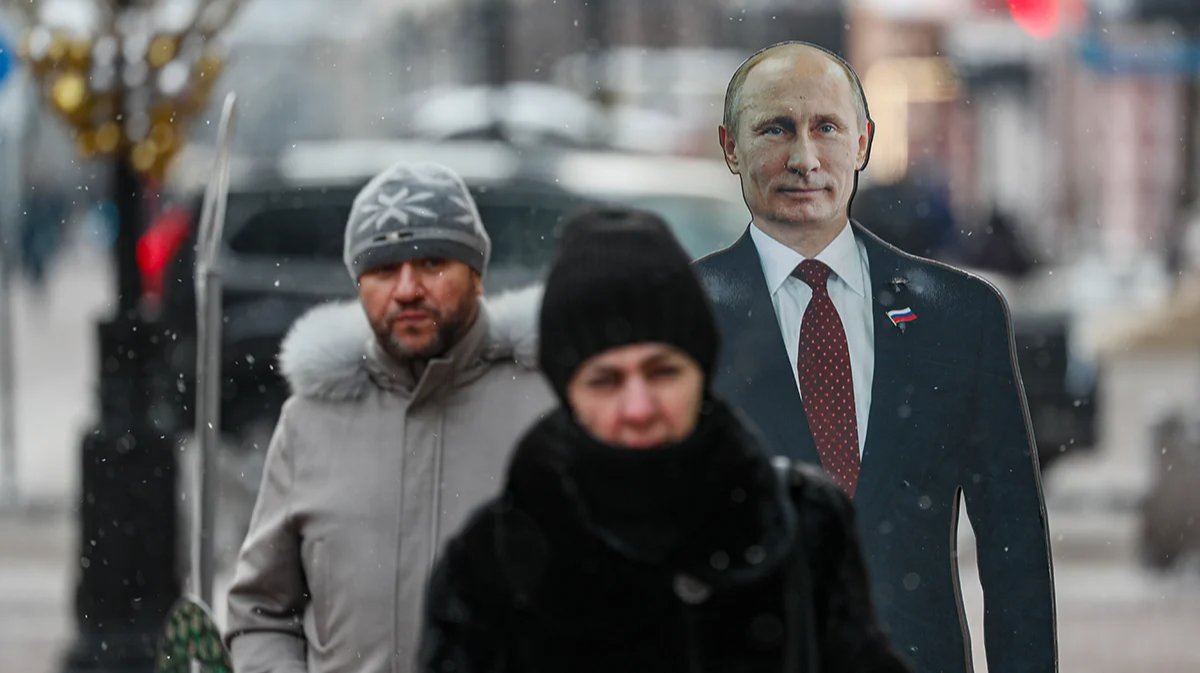With the results of March’s presidential election in Russia being all but a foregone conclusion, one of the few aspects of the vote still to be determined is who will be permitted to become a candidate, a decision that is ultimately made in the corridors of power.
On Tuesday, the ultranationalist Liberal Democratic Party of Russia (LDPR) nominated its populist leader Leonid Slutsky as their candidate for president.
The LDPR was the first of Russia’s so-called system parties — the toothless and unthreatening groupings the Kremlin permits to field candidates and even to win occasional seats in Russian elections to maintain the illusion of democracy — to officially announce a candidate.
A longtime member of the State Duma who was at the centre of the chamber’s first sexual harassment scandal in 2018, Slutsky succeeded the LDPR’s founder and veteran leader Vladimir Zhirinovsky upon his death last year.
With Slutsky’s candidacy now certain, the stage for March’s presidential election is beginning to be set. Who might each of Russia’s other main political parties select as their presidential candidate, and why are some veteran politicians apparently reluctant to join the country’s version of an electoral process this time around?
‘Three to five’
Before the Direct Line call-in event with Putin last week, business daily Vedomosti predicted that the Communist Party would nominate longtime State Duma Deputy Nikolay Kharitonov as their candidate rather than perennial stalwart Gennady Zyuganov, and that the New People party would nominate its leader Alexey Nechaev. Another party, A Just Russia, has already declined to put forward its own candidate in the election and has pledged its support to Vladimir Putin.
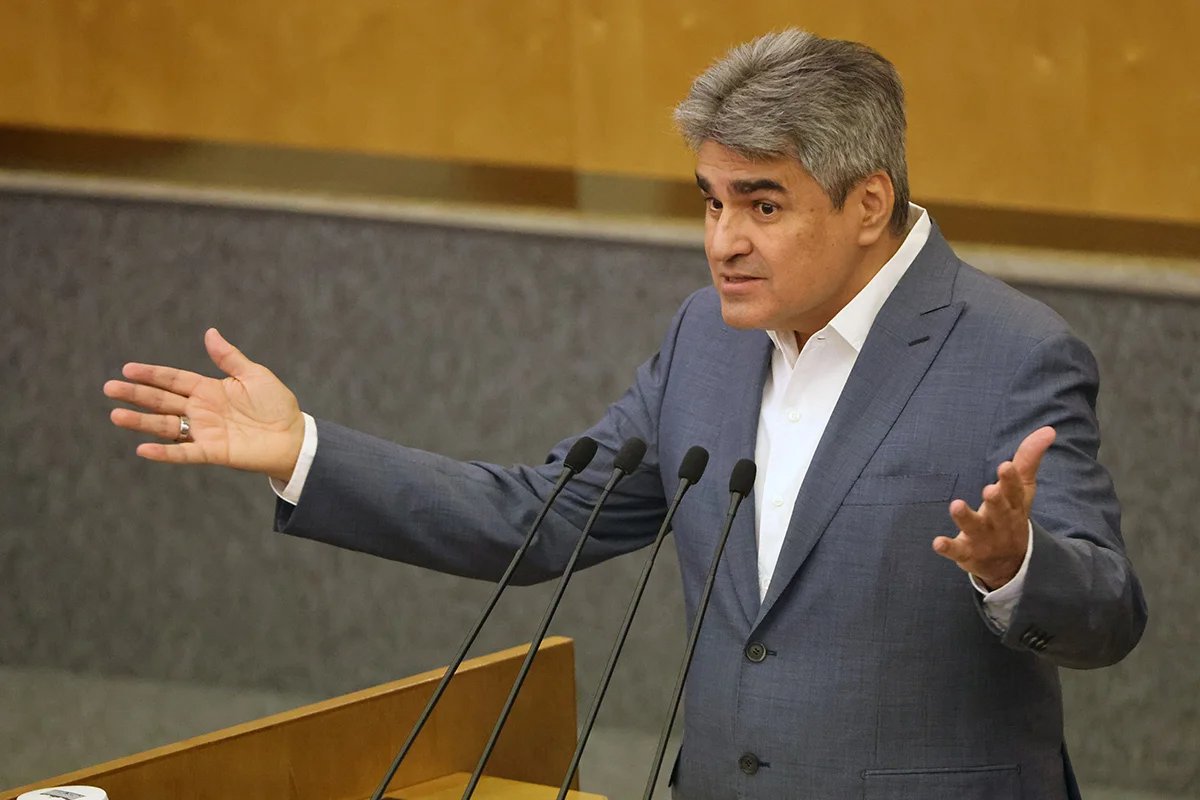
Alexey Nechaev. Photo: Contributor / Getty Images
Kharitonov’s name was “pulled out of thin air” and “wasn’t even on the lists of contenders”, one Novaya Europe source familiar with the situation said, adding that he believed Russia’s parliamentary parties were holding off on announcing their candidates until the last moment as they bargained with the Presidential Administration.
Most Novaya Europe sources believed there would be between three and five candidates on the presidential ballot paper in total, with Putin set to receive at least 80% of the vote.
“The Presidential Administration has set a target for Putin to score 80% with a turnout of 75%," one political strategist said. “But for the first time they won’t set everyone the same targets [for results and turnout], and each region will have its own key performance indicators to hit.”
Another political strategist chalks up the parties’ delay in announcing their candidates to ongoing bargaining with the Kremlin over the percentage of the vote that each party will receive.
“The Communists want to get more than Slutsky. But Slutsky wants to come second too or at least score 10%. But in that case Putin wouldn’t get 80%, which goes against the Presidential Administration’s target.”
Despite its few candidates, the election is still likely to meet the Kremlin’s aim of including a range of candidates to give voters the impression of choice, even if no true outliers will be among them.
The illusion of choice
“We can expect there to be fewer candidates in this election, because any vaguely reasonable candidate — and there were eight in 2018 — would peel away votes,” says Nikolay Petrov, a political scientist and visiting fellow at the German Institute for International Security and Affairs in Berlin.
“On the one hand, a wider range of candidates does help increase turnout because people can find an appealing alternative. On the other hand, the Kremlin now wants all those votes to go to the main candidate.”
Petrov sees the leader of the New People Party, the cosmetics millionaire and sitting State Duma Deputy Alexey Nechaev as another potential candidate. His relatively new “systemic liberal” New People party, which has only existed since 2020, espouses a rather milquetoast agenda that includes ending censorship, calling for “respectful dialogue” in politics and police reform. However, the party hasn’t challenged the government’s policies in any significant way and even backed last year’s invasion of Ukraine.
“Nechaev works well as the inconspicuous liberal. All the others are more artificial options,” Petrov continues. “Being in the Duma means Nechaev can put himself or someone else forward to run.”
Veteran Russian journalist Alexey Venediktov said recently that it was “looking increasingly likely that Alexey Nechaev will be a presidential candidate, although he fiercely denies it.” A political strategist we spoke to agreed, pointing to the fact that Nechaev “can be controlled” by the Kremlin and would do “what he’s told”.
Liberal overload
In 2018, there were three liberals on the ballot: the Party of Growth’s Boris Titov, Civil Initiative candidate Ksenia Sobchak, who likely ran with Kremlin approval, and Grigory Yavlinsky, the veteran founder of the liberal Yabloko Party, whose status as a serious opposition party has been steadily eroded over the past two decades.
The Kremlin’s tactic in 2018 was to split the liberal vote among these three disparate candidates, a plan that backfired as both Titov and Sobchak were widely seen by the electorate as carpetbaggers and spoiler candidates, leaving Yavlinsky as the sole opposition heavyweight on the ballot.
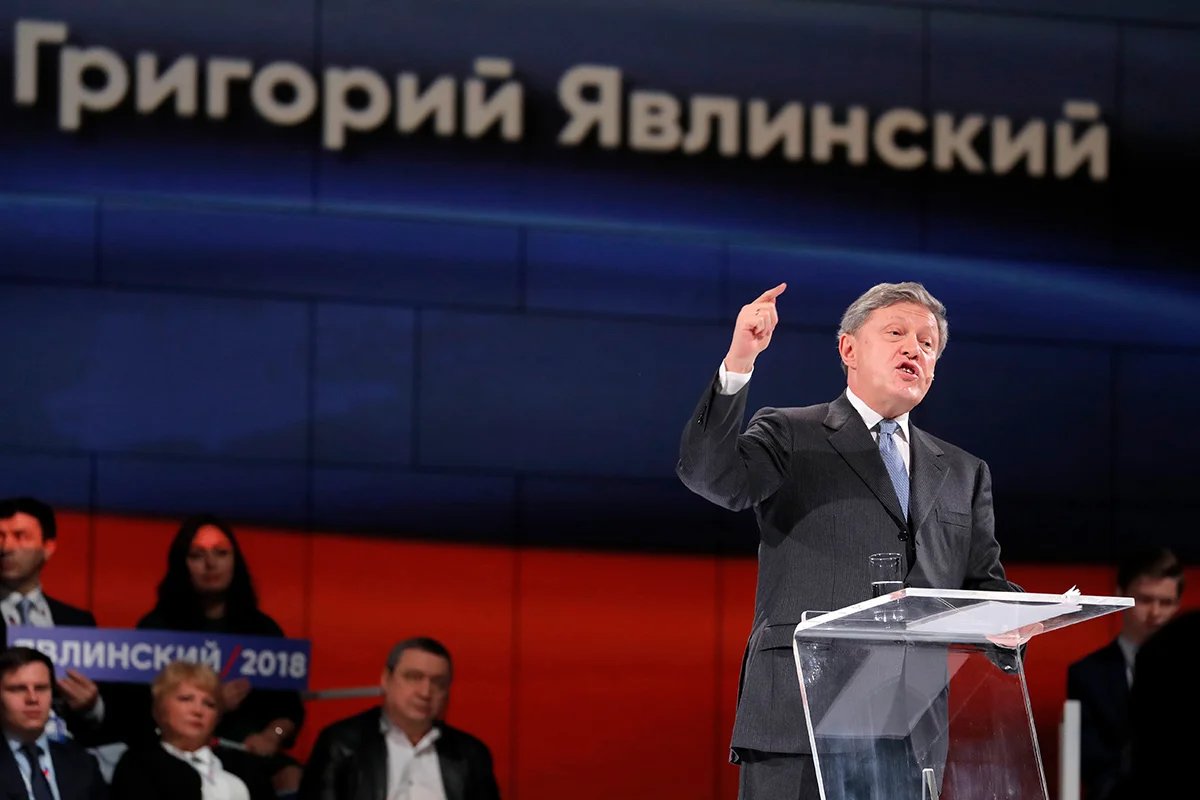
Grigory Yavlinsky. Photo: Sergey Ilnitsky / EPA-EFE
However, multiple Novaya Europe sources say that Yavlinsky is unlikely to run in this election.
“Yavlinsky is an undesirable candidate for the Kremlin. What do they want with a candidate who will criticise what Putin is doing in Ukraine?” says Petrov. “Usually when they look at the prospects for liberal politicians, they say that at best they will get 1–2% of the vote, which is fair. But their participation is about more than just percentages.”
“If, for example, Yavlinsky ran on a platform of ending the war in Ukraine, it would be a very bold, serious move, because it wouldn’t be coming from an opposition politician based abroad, but an official presidential candidate.”
Even before the Russian invasion of Ukraine last year, Yabloko publicly expressed its opposition to the war in Ukraine, making it the sole parliamentary political party in Russia to have done so. That coupled with its public support for Russian political prisoners has made Yavlinsky an increasingly unacceptable candidate for the Kremlin.
And yet despite the election potentially providing an opportunity for Yavlinsky to campaign on a platform of ending the war, Yavlinsky said in October that he would only run if he managed to collect 10 million signatures in support of his candidacy, far more than required by law.
The outliers
The first person to announce their intention to run in the election was former TV talkshow pundit Boris Nadezhdin, who was nominated by the Civic Initiative party in October. A former State Duma deputy who has been associated with a number of different political parties over the past three decades, Nadezhdin is a liberal who opposes the war in Ukraine.
The centre-right Civic Initiative was founded in 2013 by one of Boris Yeltsin’s former economy ministers and is not currently represented in the State Duma or at the regional or municipal level. The party stands for “a peaceful resolution to foreign policy issues” and an end to the war in Ukraine.
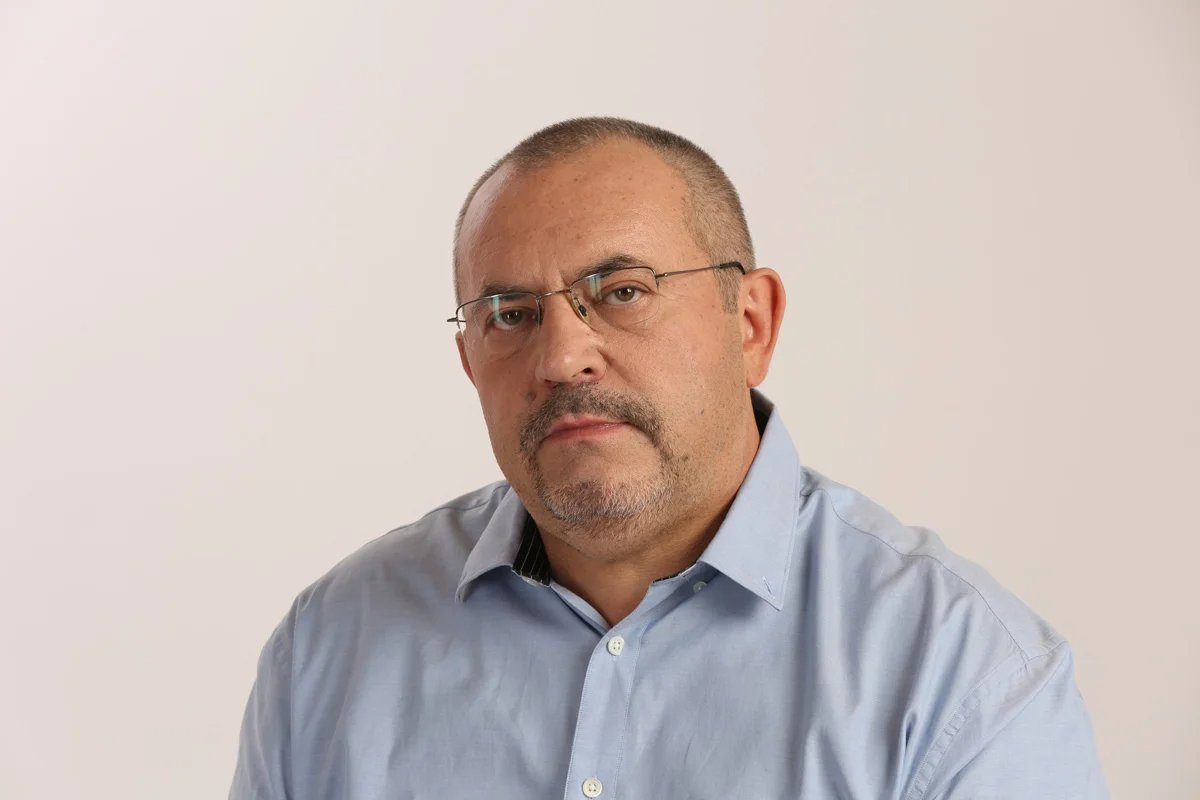
Photo: Boris Nadezhdin / VK
Petrov doesn’t think Nadezhdin has a chance of becoming an official candidate, however. “It’s unrealistic for him to collect the 100,000 signatures he needs to be accepted without special permission from the Presidential Administration,” he explains. “It’s more likely that a woman will appear, as Ksenia Sobchak did last time.”
So far the only woman to have declared her intention to run is Yekaterina Duntsova, a previously unknown local TV journalist and municipal deputy from the town of Rzhev, northwest of Moscow.
“Yekaterina is incredibly brave and we admire her determination,” a volunteer from her headquarters said. The volunteer added that 110,000 people have so far signalled their readiness to support her candidacy.
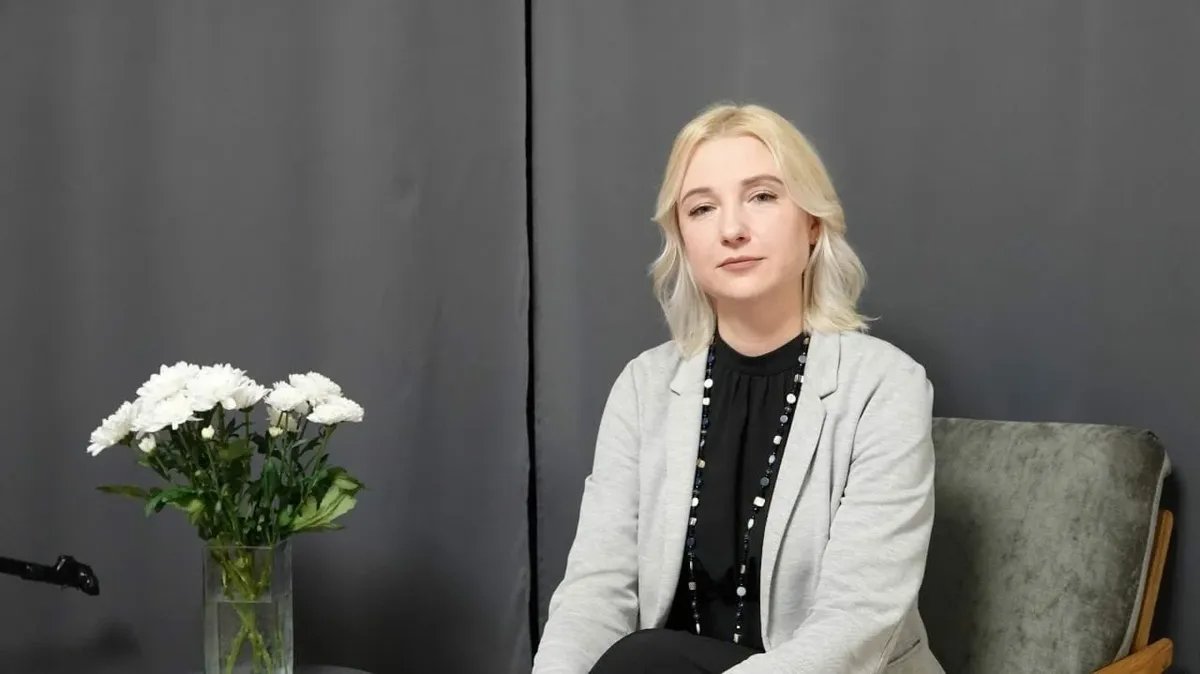
Photo: Yekaterina Duntsova / VK
Even Duntsova’s team admits to being uncertain if she will be allowed to register as a candidate, while two of our other sources were far less equivocal and said that she definitely would not be.
“A candidate should still be a person with real political weight, which none of the candidates who have so far declared their intention to run has. They don’t need people with initiative,” Petrov added.
“The Kremlin will choose who it needs to run, and won’t even consider those who want to run, who must be crazy to do so. That’s the problem for the Kremlin. People like that cannot be controlled, as they don’t have political capital or business interests that can be squeezed.”
Join us in rebuilding Novaya Gazeta Europe
The Russian government has banned independent media. We were forced to leave our country in order to keep doing our job, telling our readers about what is going on Russia, Ukraine and Europe.
We will continue fighting against warfare and dictatorship. We believe that freedom of speech is the most efficient antidote against tyranny. Support us financially to help us fight for peace and freedom.
By clicking the Support button, you agree to the processing of your personal data.
To cancel a regular donation, please write to [email protected]
